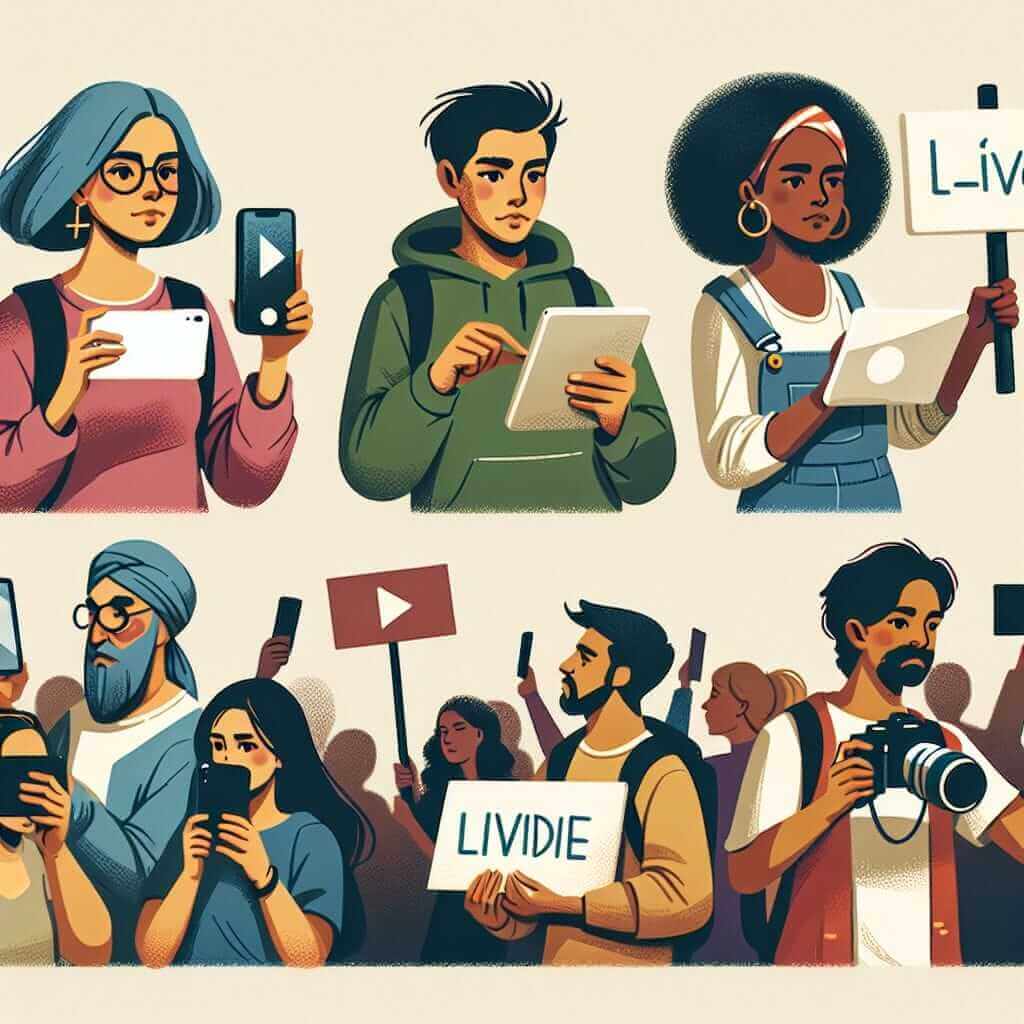The Reading section of the IELTS exam challenges candidates to understand the meaning and details presented in texts on various topics. One highly relevant and recurrent theme in recent technology and politics is the Digital Revolution and its implications for democracy. Given its global impact, this topic is likely to appear in IELTS Reading passages. This article provides a comprehensive reading practice text, questions, answers, and a study guide tailored to prepare IELTS candidates for similar topics.
Reading Passage: The Implications of the Digital Revolution for Democracy
Passage
The digital revolution, characterized by rapid advancements in technology, has significantly influenced modern society, including the democratic process. While this revolution has facilitated unprecedented connectivity and access to information, it has also posed several challenges to the integrity of democratic systems.
The proliferation of social media platforms has enabled political engagement on an unparalleled level. Citizens can now participate in political discourse more easily and effectively. Platforms like Twitter and Facebook have given rise to the concept of “digital activism,” where individuals and groups can rally for causes, influence public opinion, and even impact governmental policies without traditional media outlets.

However, the digital revolution also harbors threats to democracy. One major concern is the spread of misinformation and fake news. With algorithms prioritizing sensational content that often lacks factual accuracy, users are frequently exposed to biased or entirely false information. This phenomenon not only misleads the public but can also lead to polarization, reducing the possibility of constructive dialogue.
Cybersecurity is another pressing concern. The hacking of political organizations and election interference have notable examples in recent history. In 2016, reports of Russian interference in the United States presidential election highlighted the susceptibility of democratic processes to foreign cyber-attacks. Ensuring the security of digital platforms is now paramount to maintaining electoral integrity.
Another issue attributed to the digital age is the erosion of privacy. The collection and exploitation of personal data by corporations and governments have raised ethical questions about surveillance and individual freedoms. In countries with authoritarian regimes, digital surveillance allows for the suppression of dissent, undermining democratic principles.
Despite these challenges, technological advancements also present opportunities for enhancing democracy. E-voting systems can facilitate easier and more accessible voting processes, increasing voter turnout. Additionally, blockchain technology offers potential solutions to secure electronic voting systems and protect against fraud.
Overall, the impact of the digital revolution on democracy is multifaceted. While it presents tools for empowerment and engagement, the associated risks cannot be ignored. Addressing these challenges will require a concerted effort from policymakers, tech companies, and civil society to ensure that the digital age benefits democracy rather than undermines it.
Questions
Multiple Choice
-
What is the main idea of the passage?
- A. The benefits of digital activism
- B. The implications of the digital revolution for democracy
- C. The history of the digital revolution
- D. The role of social media in politics
-
According to the passage, what is one advantage of the digital revolution for democracy?
- A. Increased voter fraud
- B. Enhanced cybersecurity
- C. Simplified communication and participation
- D. Improved privacy measures
True/False/Not Given
- Social media platforms are the only source of political misinformation.
- Russia’s involvement in the 2016 US presidential election is an example of digital interference.
- The passage states that blockchain technology decreases voter turnout.
Answer Keys
Multiple Choice
- B – The implications of the digital revolution for democracy
- C – Simplified communication and participation
True/False/Not Given
- False – The passage mentions social media but does not claim it is the only source of misinformation.
- True – The passage explicitly mentions the reports of Russian interference in the US election.
- False – The passage discusses blockchain technology as potentially increasing voter turnout, not decreasing it.
Common Mistakes and Lessons
Common Mistakes
- Misinterpreting the main idea: Candidates often lose points by not identifying the central theme. Ensure to understand the overall message of the passage.
- Incorrectly answering True/False/Not Given: Distinguish between information explicitly stated in the passage (True/False) and information that the passage does not provide (Not Given).
Lessons
- Carefully read the passage more than once to fully grasp all details.
- Pay extra attention to qualifiers (e.g., “only,” “major”) that change the meaning of sentences in True/False/Not Given questions.
Vocabulary
Key Vocabulary
- Proliferation (noun) [prəˌlɪfəˈreɪʃən]: rapid increase in numbers – The proliferation of social media…
- Erosion (noun) [ɪˈroʊʒən]: the gradual destruction or diminution of something – The erosion of privacy…
- Integrity (noun) [ɪnˈtɛɡrəti]: the quality of being honest and having strong moral principles – Maintaining electoral integrity…
Example Sentences
- The proliferation of smartphones has changed communication dynamics globally.
- Erosion of trust in government institutions can undermine democracy.
- Ensuring integrity in elections is crucial for any democratic society.
Grammar Focus
Relative Clauses
- Definition: A relative clause is a type of subordinate clause that modifies a noun.
- Example: “The digital revolution, which has facilitated unprecedented connectivity and access to information, has also posed several challenges.”
- Usage: Use relative clauses to add essential or extra information about a noun in your sentences.
Advice for High Reading Scores in IELTS
- Practice Regularly: Engage in regular reading practice using a wide variety of texts.
- Improve Vocabulary: Build a strong vocabulary base, especially for common IELTS topics.
- Develop Skimming and Scanning Techniques: Learn to quickly identify key information and details needed for answering the questions.
- Manage Time Efficiently: Allocate time wisely during practice to prepare for the actual exam conditions effectively.
- Understand Question Types: Familiarize yourself with different question types and strategies for tackling each one.
By following these strategies and practicing with comprehensive reading passages, candidates can significantly enhance their performance in the Reading section of the IELTS exam.